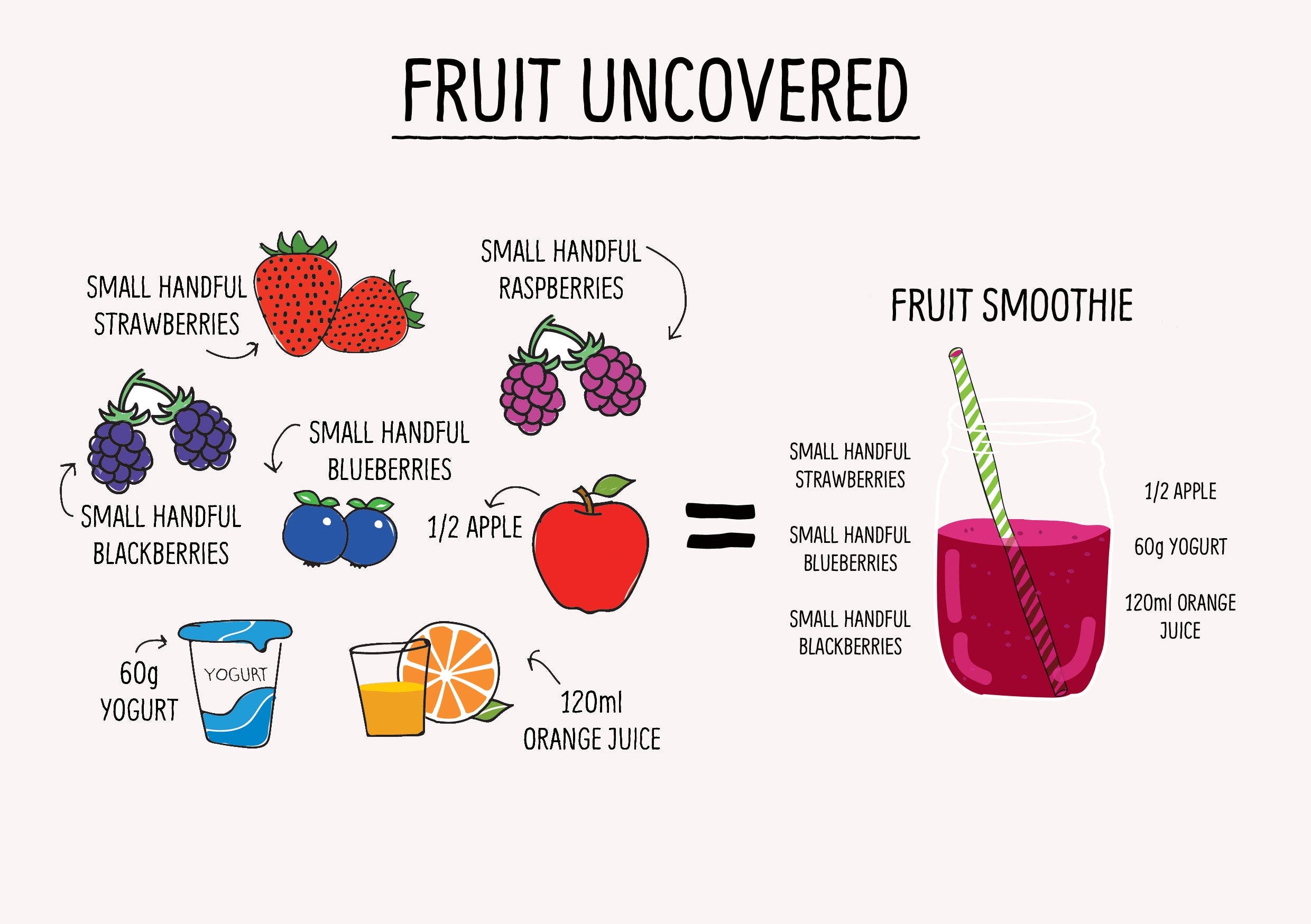The real reason fruit juices and smoothies have Points®


You probably already know that building meals with ZeroPoint™ foods is a great way to stay in your Budget. But you also might have noticed that your non-starchy veggies and fruit (if it’s one of your ZeroPoint foods) have Points® values when you track them in a smoothie. What evil sorcery is this? How do ZeroPoint blueberries come out of a blender...counting?
Fair question. It’s true that fruits and veggies are zero when you eat them whole. But once they become part of a smoothie, the experience of eating them changes.
Here’s what’s happening:
- Drinking something eliminates the act of chewing, a critical step which can impact the “I’m full” signals between your belly and your brain.¹
- This means that the smoothie or juice you’re drinking will not promote the same feeling of fullness between meals as eating the fruit or veggies.
- Also, when you blend (or juice) fruits or veggies, it’s easier to consume more of the smoothie or juice than you would if you ate that same fruit or vegetable whole.
Take a look at the illustration below. It’d take some time to eat all of the fruit on the left-hand side and afterwards, you’ll probably feel like you ate a full meal.
Now imagine if you puréed all that down and drank it. That smoothie would be gone in a few sips. You might even decide to throw in another banana, and then some more strawberries, maybe some more yogurt and juice just to fill the cup…(you see where this is going, right?) And because blended fruit has less fibre than whole fruit, you may get hungry sooner, and be more likely to eat more later.

So, what’s the bottom line? If it’s something you’ll drink, like a juice or smoothie, it will have a Points® value. If it’s something you’ll eat, like salsa, sauce, stew, or soup, it won’t.
Are there other times when I need to count the Points for fruit?
When a fruit has added sugar, such as fruit in syrup or its own juice, or when there’s less water content (for example, dried fruit) the Points® values will count.
¹Cassady BA, Considine RV, Mattes RD. Beverage consumption, appetite, and energy intake: what did you expect? Am J Clin Nutr 2012;95:587-93.
²Public Health England, (2014). National Diet and Nutrition Survey: results from Years 1 to 4 (combined) of the rolling programme for 2008 and 2009 to 2011 and 2012. National Diet and Nutrition Survey:. [online] Public Health England, p.10.
